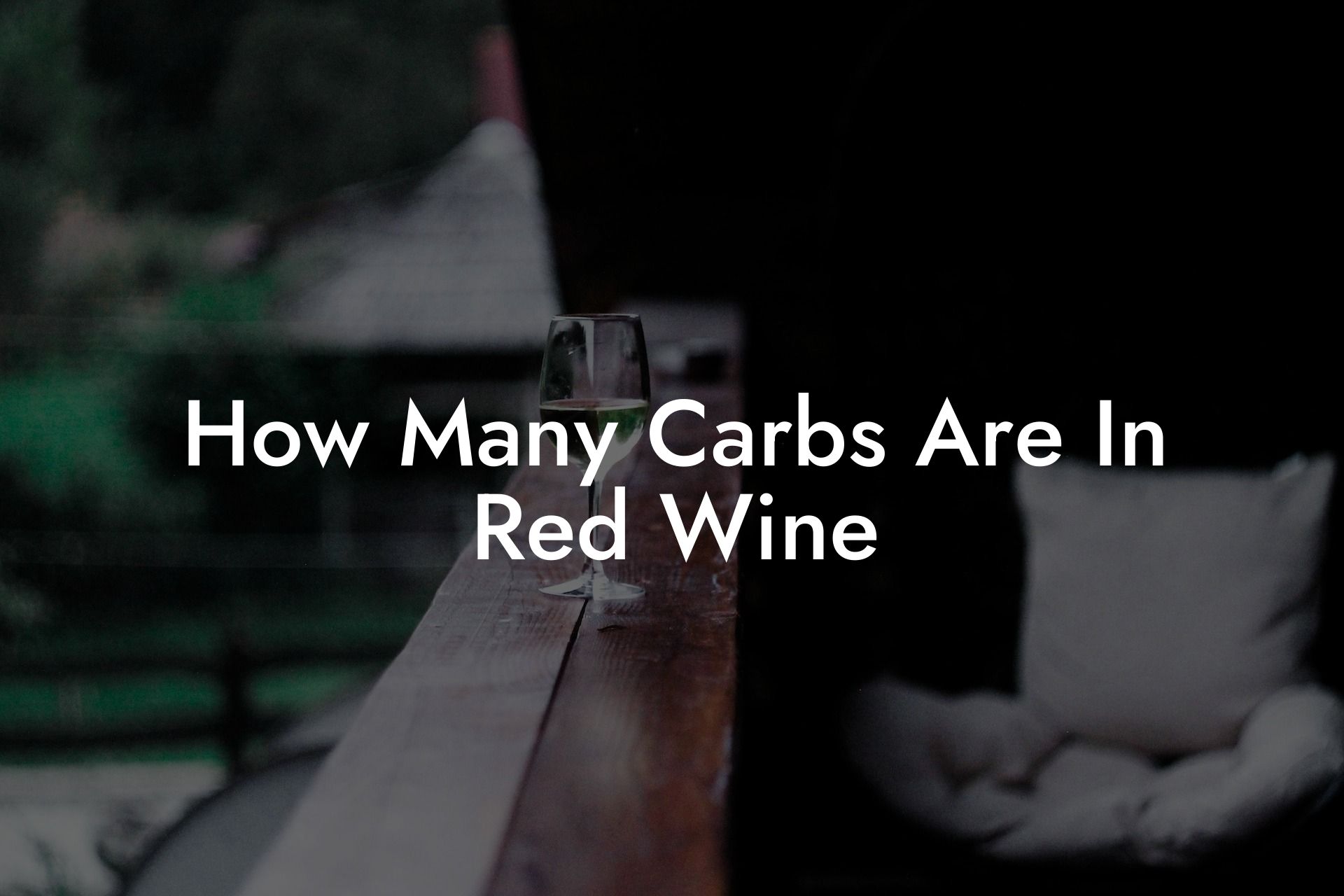Welcome to Black Wine Club, where the love of wine meets the love for electronic music and all things artsy. Today, we are diving into a topic that concerns many of our fellow wine enthusiasts: carbs in red wine. If you ever wondered whether your favorite glass of red should be a source of concern, this article is for you. Let's unravel the mystery behind carbs in red wine and help you better understand what goes into your glass.
How Many Carbs Are In Red Wine Table of Contents
Carbohydrates in Red Wine
First, let's briefly understand what carbs are. Carbohydrates are one of the main types of nutrients our body needs and are broken down into sugars, fibers, and starches. Now let's dive into the world of red wine.
Amount of Carbs in Red Wine
The amount of carbs in red wine can vary depending on factors like grape variety, sugar content, and wine-making process. Generally speaking, red wines contain fewer carbs than white wines, mainly due to the fermentation process.
Do You Want to Win a Free Bottle of Wine?
Don't miss out on the opportunity to win a free bottle of wine every week.
Enter our weekly prize draw today!
During fermentation, yeast consumes sugar and converts it into alcohol, and the longer the fermentation, the lower the carb content. Red wines typically undergo a longer and more thorough fermentation process, which results in fewer residual sugars.
- Dry Red Wines: Usually contain around 2 to 4 grams of carbs per 5-ounce glass.
- Sweet Red Wines: Typically have higher carb content, ranging from 5 to 9 grams per 5-ounce glass.
Low-Carb Red Wine Options
If you are looking for red wines that are low in carbs, here are some options for you to consider:
- Pinot Noir: A popular light-bodied red wine with a moderate carb count of approximately 3 grams per 5-ounce glass.
- Cabernet Sauvignon: A full-bodied red wine, containing around 3.5 to 4 grams of carbs per 5-ounce glass.
- Merlot: Another full-bodied red wine, with around 3.5 grams of carbs per 5-ounce glass.
- Zinfandel: A bold and fruity red wine, with approximately 4 grams of carbs per 5-ounce glass.
- Chianti: An Italian red wine made from Sangiovese grapes, containing around 3.5 grams of carbs per 5-ounce glass.
Carbs and the Health Benefits of Red Wine
Red wine has long been praised for its potential health benefits, particularly due to the presence of antioxidants, such as resveratrol, which can have positive effects on heart health and may help prevent certain types of cancer. However, it is important to remember that moderation is key when consuming alcohol. Drinking wine in excess can negate any potential health benefits and contribute to weight gain or other health issues. Health experts recommend a maximum of one glass a day for women and two glasses a day for men.
How Many Carbs Are In Red Wine Example:
Imagine you're attending one of Black Wine Club's exciting wine tasting and live electronic music events. You enjoy a glass of delicious Cabernet Sauvignon. With around 3.5 to 4 grams of carbs in your 5-ounce glass, you can savor the flavors without worrying too much about your carb intake. Keep in mind that moderation is key to truly reap the potential health benefits of red wine.
So, there you have it: the lowdown on carbs in red wine. The next time you raise a glass, feel confident knowing you're better informed about your carb content. At Black Wine Club, our aim is to share our love of wine, music, and creativity with our fellow artsy folks. If you enjoyed this article, don't hesitate to share it with your friends and explore other intriguing guides on our website. Cheers!
Do You Want to Win a Free Bottle of Wine?
Don't miss out on the opportunity to win a free bottle of wine every week.
Enter our weekly prize draw today!












